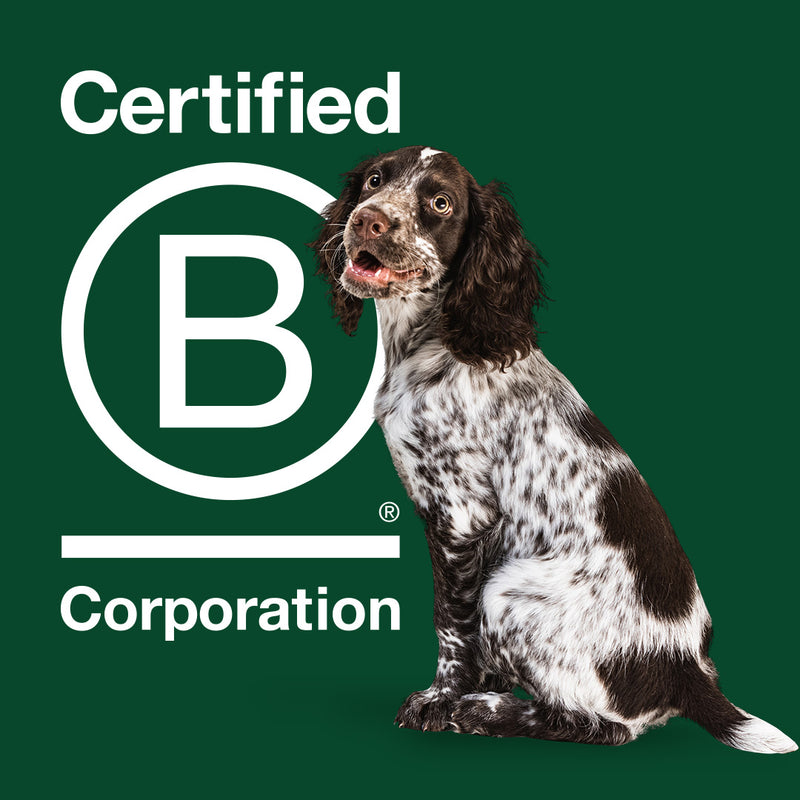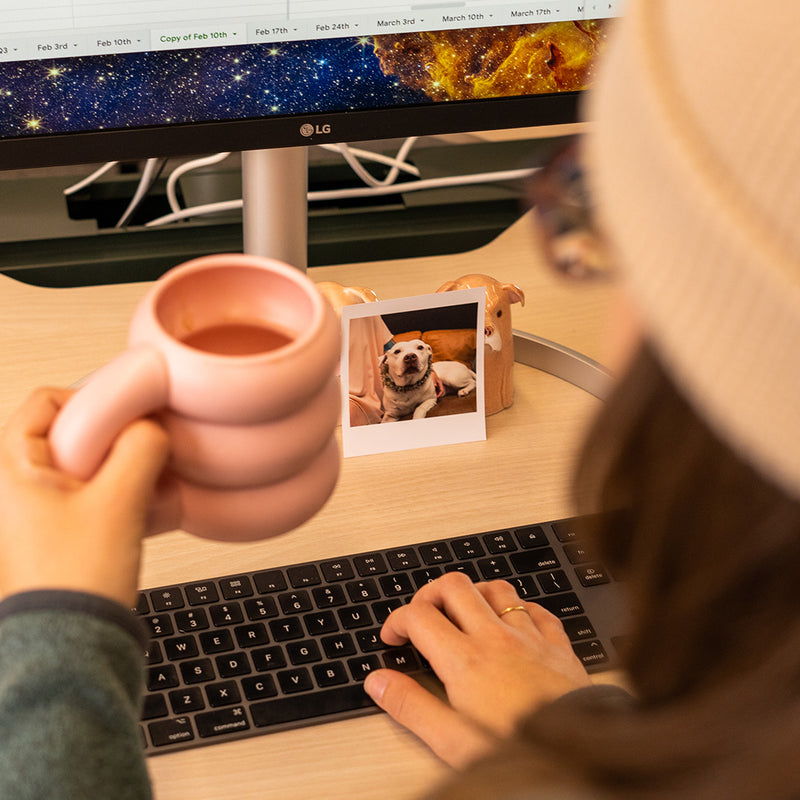Did you know most dogs exhibit some kind of anxious behavior? If you have an anxious dog, you're not alone. In fact, many of our team dogs here at Earth Rated also live with anxiety in different forms.
Recognizing Signs of Stress in Dogs
Luckily, there are steps you and the people around you can take to help your dog stay as cool, calm and collected as they can be. A great way to keep an anxious dog calmer is to know how to interact with them. We asked Sébastien, a certified positive reinforcement dog trainer at Bravo Fido, for his best advice. Share these tips with your friends, family, or coworkers to help them know what to.
Immediate Calming Techniques
Here are three tips to help smooth over interactions with anxious dogs.
1. Learn about dog body language. Getting a basic understanding of stress signs and postures will help you see when a dog is uncomfortable and reduce the risk you put pressure on a pup who's not ready for close contact.
2. Keep your distance from anxious dogs and pretend they’re not there. This might feel counterintuitive since our first reflex would be to soothe and comfort them. For an anxious dog, however, looks, speech, or touches from a stranger can be highly distressing. If you’re around an anxious dog, always give him lots of room when moving around and avoid looking, speaking, or touching him. Let the dog observe you from afar and wait for them to make the first move toward you.
3. Treats galore! If you want to befriend an anxious dog, it might help to toss a treat to them without looking. Check with the dog’s owner for appropriate foods and whenever you walk by, ignore the pup but toss them a tasty snack.
Long-Term Strategies for a Calmer Dog
Over time, the dog will learn that you’re a cool person who also happens to be a treat dispenser. Through all this, be patient. The dog gets to decide when and how they wish to befriend you (or not!). Some shy dogs, once feeling safe, will become your best buds. Others will be comfortable around you but aloof and that’s ok too! With these tips, you’ll be set up for success either way.
Natural Remedies and Supplements
Managing anxiety in dogs can often be supported with natural remedies and supplements, always ensuring they are vet-approved to guarantee they're safe and beneficial for your pup. Common natural supplements include CBD oil, known for its calming effects, and chamomile, a gentle herb that can help soothe an anxious dog. It's crucial, however, to consult with a veterinarian before introducing any new supplement to your dog's diet to ensure it's appropriate and safe for their specific health needs.
In addition to supplements, providing a dog with interactive toys can significantly aid in reducing anxiety. Earth Rated’s Treat Toy, for instance, is designed to engage dogs in a rewarding challenge that not only keeps them entertained but also helps distract them from any anxiety-inducing stimuli like loud noises or other dogs. Filling this toy with your dog’s favorite treats encourages them to play and solve the puzzle to access the reward. This type of mental stimulation is invaluable for anxious dogs as it helps burn off energy and provides a sense of accomplishment and calm once they succeed. The act of working for their treats can significantly reduce stress levels, making Earth Rated’s Treat Toy an excellent tool for helping calm anxious dogs.
When to Seek Professional Help
Recognizing when to seek professional help is crucial in managing a dog's anxiety effectively. While natural remedies and supplements, alongside behavioral techniques, can provide relief for many dogs, there are instances where professional intervention is necessary. Here are some guidelines to help you determine when it's time to consult a professional:
Persistent Symptoms: If your dog’s anxiety symptoms persist despite your best efforts with home remedies and training techniques, it may be time to seek professional help. Symptoms to watch for include excessive barking, destructive behavior, and signs of panic during certain situations.
Aggressive Behavior: If your dog's anxiety manifests as aggression towards people or other animals, it's wise to consult a professional. This behavior can be dangerous and requires intervention by someone skilled in handling behavioral challenges in dogs.
Health Concerns: Sometimes, what appears to be anxiety can actually be a sign of an underlying health issue. So, if your dog is displaying new or worsening signs of anxiety, a vet checkup is necessary to rule out any medical causes.
Significant Life Changes: Events like moving, adding a new pet or family member to the household, or losing a companion can significantly impact your dog's emotional well-being. If your dog struggles to adjust to these changes, a professional dog behaviorist can provide strategies to help them adapt more comfortably.
Professionals such as veterinarians, animal behaviorists, and/or certified dog trainers with experience in dealing with anxiety can offer tailored advice and treatment plans. These may include behavior modification programs, environmental changes, or in some cases, medication to help manage your dog's anxiety more effectively. Remember, the goal is to ensure your dog leads a happy, stress-free life, and sometimes that means enlisting the help of those with expertise in dog behavior and health.












